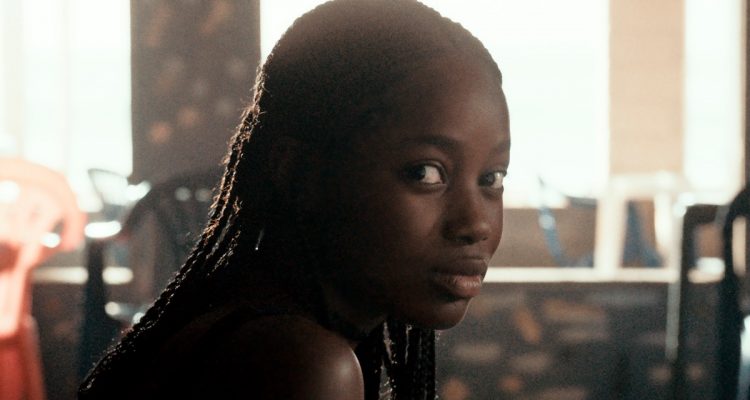While director Mati Diop sets up “Atlantics” to be a modern-day Senegalese “Romeo and Juliet” — characters could almost directly be matched to their Shakespearean counterparts — it turns out to be something even more haunting than star-crossed love. With the specter of encroaching modernity looming in the background and a magical realist plot twist involving reincarnation, Diop slowly teases out a harrowing migration tale of the women left in the wake of departure, venturing into the surreal to depict the consequences of grief and lost love.
READ MORE: 2019 Cannes Film Festival: The 21 Most Anticipated Movies
In Dakar, Senegal, a monstrous new tower presents a grueling construction project to its underpaid, overworked local workers. Among them is a young man named Souleiman (Ibrahima Traore), who secretly meets Ada (Mama Sane), despite the fact that she is betrothed to Omar (Babacar Sylla), a much older, wealthier man. Tender close-ups of murmured conversations on the beach highlight the genuineness of their relationship, how intimately they understand each other.
READ MORE: the 100 Most Anticipated Films Of 2019
But when Ada sneaks out to a seaside club that night to meet her boyfriend, she’s devastated to hear that Souleiman, along with some of his friends, has set out to sea, in hopes of reaching Spain and starting a better life. In the void left by his disappearance, Ada moves dispassionately through life, numbly going through the motions of a wedding ceremony with Omar.
READ MORE: The 25 Best Films Of 2019 We’ve Already Seen
Yet she can’t quite forget about Souleiman, especially when the tawdry wedding bed gifted to her for her wedding night spontaneously catches on fire and one of her friends claims to have seen Souleiman at the scene of the incident. And more strangely still, the straitlaced inspector assigned to the case (Amadou Mbow), as well as a few of Ada’s close friends, experience symptoms of a fever that grows stranger by the minute.
READ MORE: Summer Movie Preview: 35 Films You Shouldn’t Miss
Diop has been touted as the festival’s first black female director, and “Atlantics” does bring a dose of much-appreciated representation to the line-up. But even examined in a vacuum devoid of its sociopolitical implications, it bears the aesthetic and thematic hallmarks of an expertly rendered film with an impressively nuanced subjectivity. Close-ups of inert objects linger like pleasant still-lifes: a candle, burned to solidified waxy drips; the gently drifting hem of a curtain in a rainstorm; an empty bed with rumpled sheets. Each connotes a facet of its own melancholy, as well as time passing and Ada’s emotional fragility. Cinematographer Claire Mathon casts each image in its own washed-out light, all to the soundtrack of Fatima Al Qadiri’s evocative synth score, vibrating like something out of sci-fi.
Needless to say, “Atlantics” is certainly not short of atmosphere, a visual feat that dovetails naturally with the film’s arresting conceit. At first, it’s unclear how exactly the plot and subplot are related — and perhaps here Diop and Olivier Demangel’s screenplay tends to meander, when it could arrive at its reveal a little sooner — but the revelation, which culminates in a series of mirror shots, is as gratifying as it is inventive. Though Souleiman is thought to have drowned at sea, like a Senegalese retelling of Tristan and Ysolt, Ada and Souleiman are perhaps more closely intertwined than previously imagined. Still, though the plot resolution is emotionally fulfilling, it leaves a thread of plot untied (how, exactly, does the inspector factor into all this?). In the interest of preserving the film’s epiphanic moment, this review will leave it at that.
Still, perhaps affect is a greater strength than effect, in this case. As Ada narrates the final lines of her story, she articulates one last resonant question: To whom does the future belong? Implicitly, she’s asking who controls the story. The question is Diop’s, as much as it is her protagonist’s. “Atlantics” seems to be her answer. [B+]

